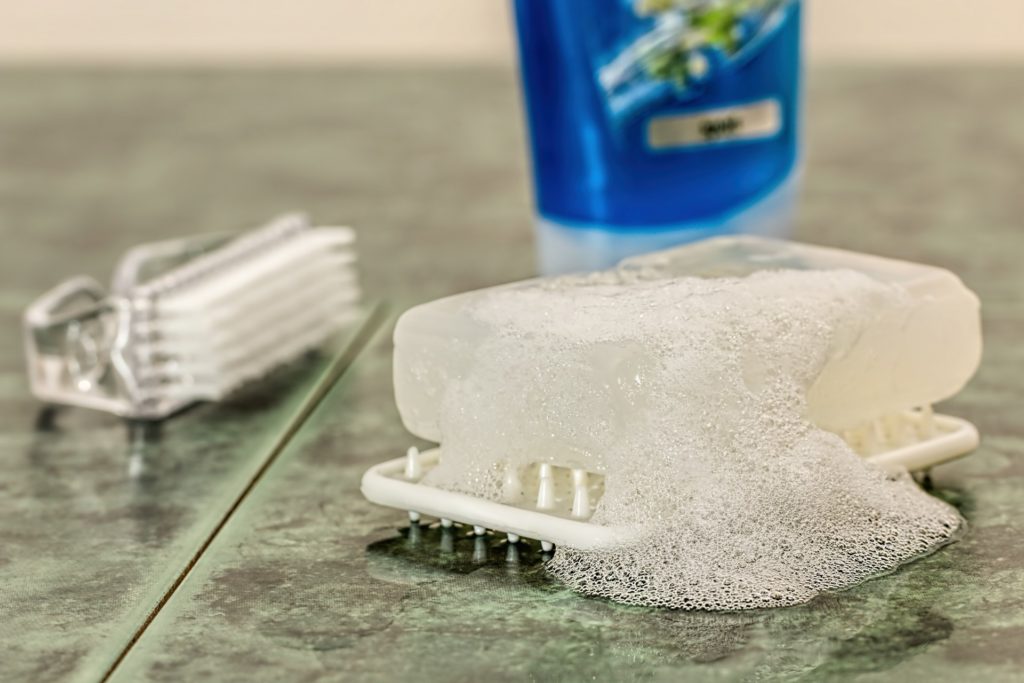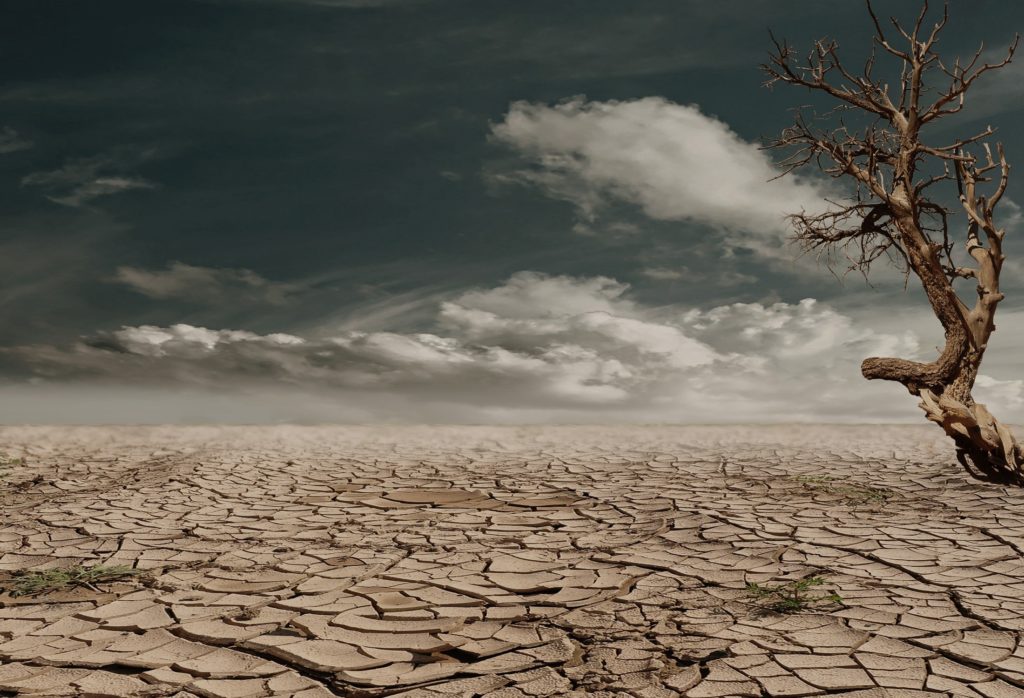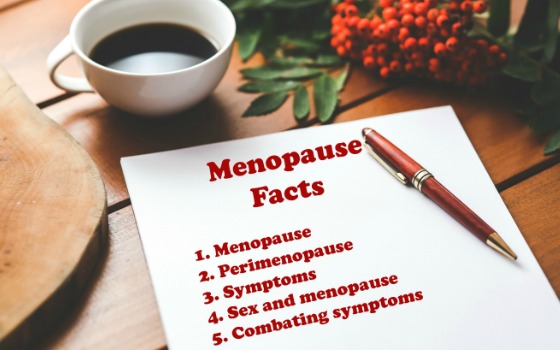 If menopause were a living, breathing person, we would give her some serious side eye. After all, menopause is our midlife nemesis. It wreaks havoc on nearly every part of our body – from having the hair on our heads falling out to wiry hairs sprouting like weeds from our chin, nose, and ears, to muscle and joint pain that slows our bodies down, to near-catastrophic problems going on down there.
If menopause were a living, breathing person, we would give her some serious side eye. After all, menopause is our midlife nemesis. It wreaks havoc on nearly every part of our body – from having the hair on our heads falling out to wiry hairs sprouting like weeds from our chin, nose, and ears, to muscle and joint pain that slows our bodies down, to near-catastrophic problems going on down there.
Down there? Down where? Well, in our vaginas, of course.
Yes, I said it: Vagina.
In 2017, I attended a 3-day conference in Orlando for female bloggers and content creators. During one of the speaker sessions, the CEO of a popular women’s vaginal care line spoke about her family’s legacy and her company’s products. Every time she said the word “vagina,” stifled girlish giggles could be heard from every corner of the room. Some women stormed off in a huff and left the room in a cloud of indignation, while others sat slack-jawed (their mouths forming a perfect “O”) and rooted to their seats in uncomfortable astonishment. The woman sitting next to me blurted out, “I can’t believe she’s going on and on about vaginas!” before she, too, fled the scene.
I found it both bewildering and disheartening that a room full of women – all of whom had vaginas – were incensed, uneasy and embarrassed at hearing the word “vagina” being spoken about so effortlessly and without a hint of shame.
To me, that speaks to a collective awkwardness among women in talking about what should be a shame-free dialogue about our natural body parts and functions. But please, let’s talk about it.
Let’s discuss what’s going on down there, shall we?
If you’re a peri- or menopausal woman experiencing vaginal dryness, irritation, bleeding, discharge, itching or painful intercourse, you’re not alone.
What Causes Vaginal Dryness?
During peri- and menopause, hormone levels drop dramatically. With this decrease in estrogen, the vagina walls can lose their elasticity and suppleness and, over time, become thin, fragile and tight. In severe cases, intercourse can be extremely painful, resulting in tears and even bleeding.
Ouch!
Vaginal dryness isn’t a hygiene issue; it’s a hormone-deficient issue.
 It can’t be remediated with a little soap and water or by douching (which, by the way, can make the condition worse by causing an imbalance in your pH levels, resulting in discharge, yeast infections, odor or bacterial vaginosis).
It can’t be remediated with a little soap and water or by douching (which, by the way, can make the condition worse by causing an imbalance in your pH levels, resulting in discharge, yeast infections, odor or bacterial vaginosis).
The Good, The Bad and The Ugly of Dry Vagina
In a perfect world (with a perfect vagina), vaginal flora, the beneficial bacteria, and yeast that live in the vagina keep your lady parts functioning properly. That’s the good part. When vaginal flora isn’t properly moistened, there’s an overgrowth of bacteria or the pH balance is off kilter, problems can arise. That’s pretty bad. Now for the ugly. Vaginal atrophy.
Vaginal atrophy (also known as atrophic vaginitis) can affect perimenopausal and menopausal women. It is the thinning of the vaginal tissue (and, in some cases, inflammation) and the decrease in natural lubrication of the vagina caused by a decrease in estrogen. Studies suggest that around 40% of postmenopausal women experience it, but, sadly, many don’t seek treatment.
Vaginal atrophy can also be prompted by surgical or medical conditions that cause a decrease in estrogen, such as a hysterectomy, brachytherapy (surgery for gynecologic cancers), radiotherapy, etc. Additionally, it may become worse with the natural aging process.
And now for the uglier. Dyspareunia. Dyspareunia is when you want to get busy, but you don’t dare try because the sheer act of intimacy is excruciating. It’s painful intercourse, ladies, and it’s real. This isn’t just recapitulation aided by a Google search; I speak from experience. The irritation, the lack of natural lubrication and elasticity, the thinning vaginal walls – it’s enough to make a woman shy away from sexual intercourse altogether.
Treatment for Vaginal Dryness and Vaginal Atrophy
 As noted earlier, soap and water are not the solutions to a dry vagina. For less severe dryness issues, over-the-counter nonprescription and nonmedicated moisturizing creams and lubricants can offer some relief. Lubricants, which are not absorbed into the skin, come in either gel or liquid form and are more localized. These may work well when applying just prior to sexual intercourse. Moisturizers, on the other hand, are absorbed into the skin. Unlike with lubricants, moisturizers are used regularly, not just prior to sexual intercourse.
As noted earlier, soap and water are not the solutions to a dry vagina. For less severe dryness issues, over-the-counter nonprescription and nonmedicated moisturizing creams and lubricants can offer some relief. Lubricants, which are not absorbed into the skin, come in either gel or liquid form and are more localized. These may work well when applying just prior to sexual intercourse. Moisturizers, on the other hand, are absorbed into the skin. Unlike with lubricants, moisturizers are used regularly, not just prior to sexual intercourse.
However, when the dryness and related pain is more severe, it might be time to turn to your doctor or menopause practitioner. She will be able to work with you to find the best option to help with your specific condition. There’s more than one route available to you.
To thicken the vagina’s surface tissue, restore the normal pH balance and increase lubrication and blood flow, systemic hormone therapy is an option for relief. This includes prescription vaginal estrogen which comes in a number of forms: oral tablets, vaginal rings, vaginal inserts and skin patches. Other options include topical hormones, which also comes in the form of vaginal creams, rings or tablets.
Another way to give the vagina a reprieve is through vaginal dilator therapy. Vaginal dilators are specially designed rounded cylinders that come in a range of sizes. They’re used to help create new muscle memories in the vagina by stretching the vagina for more girth and length, desensitize the vagina muscles and give a woman more control over the involuntary tightness. The vagina dilator combined with pelvic floor exercises can be of great benefit.
If you are experiencing symptoms of vaginal dryness – from mild to more severe, painful instances – talk with your doctor or menopause practitioner. Through frank and honest discussions with her, together, you can create an action plan to give your vagina relief. Don’t suffer in silence.
If you’re experiencing vaginal dryness, have you talked about it with your doctor? If not, why? Let’s discuss it in the comments.
This article originally appeared on pepper&wits.





[…] Discussed on the Show: Article, “What in The World is Going On Down There?“ […]